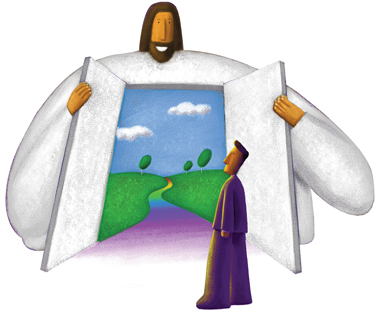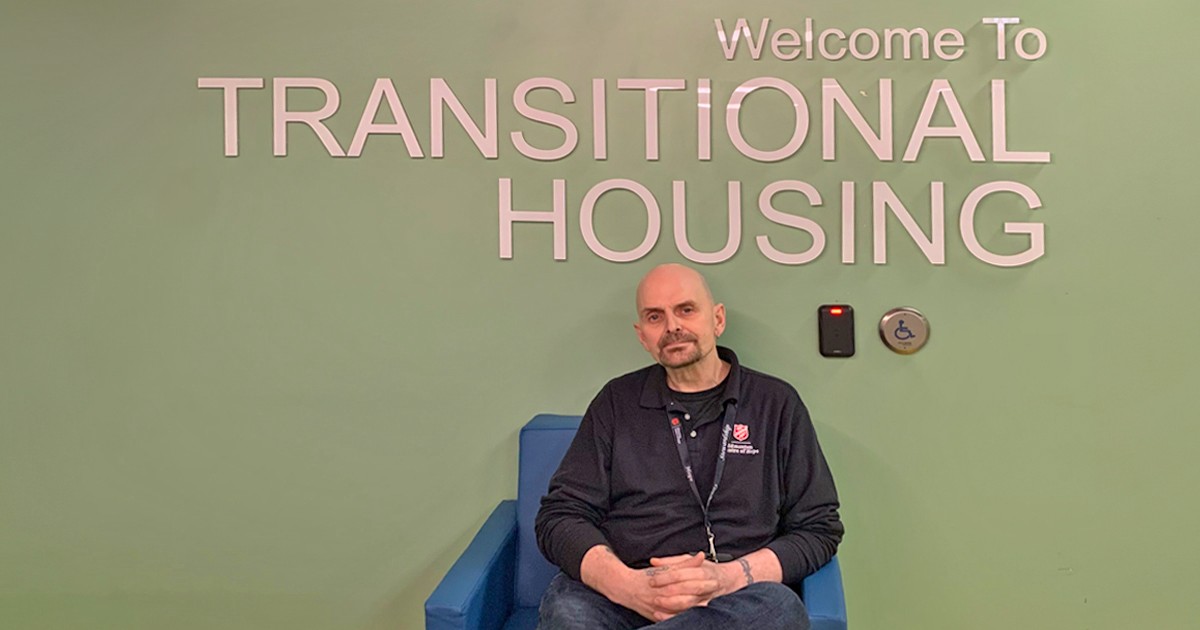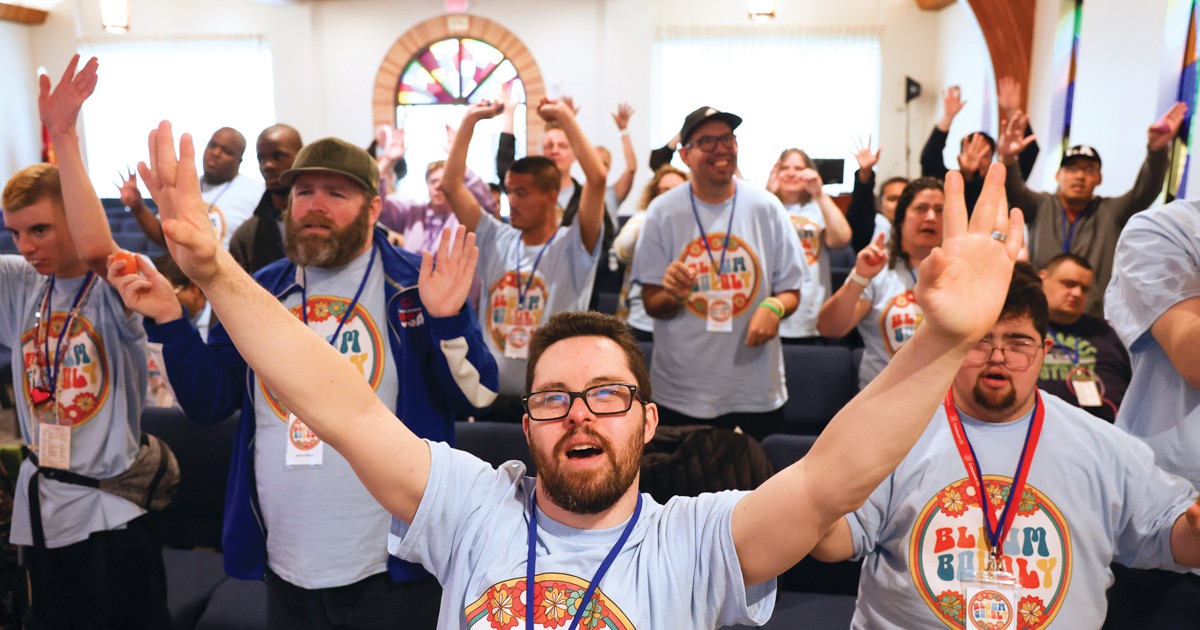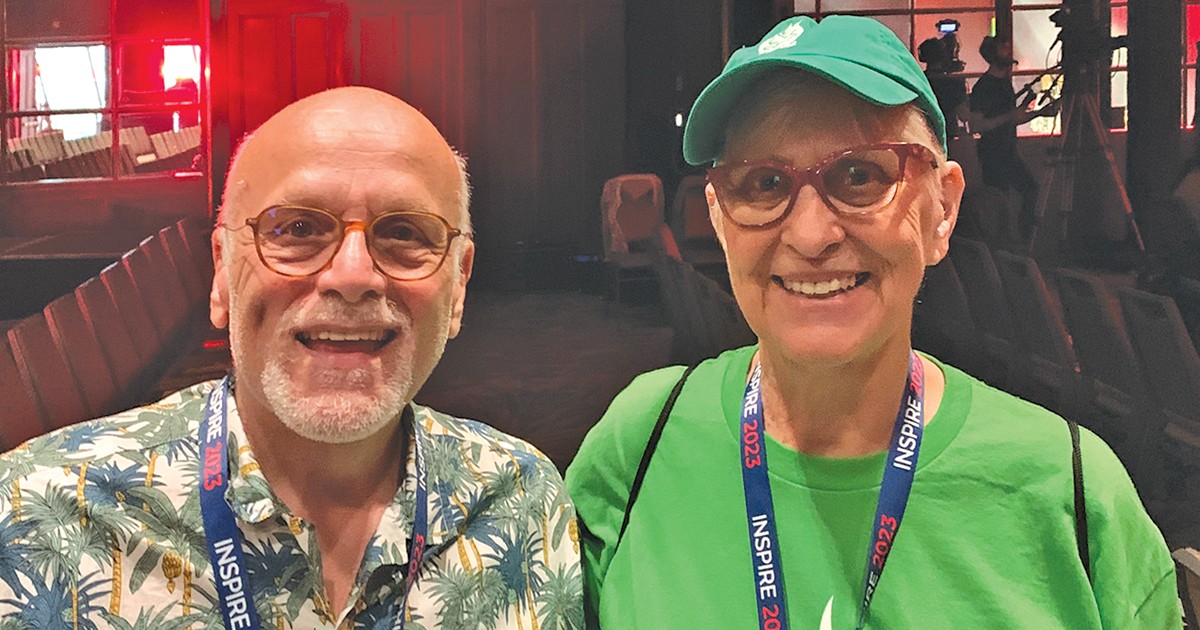 When considering this final Talking Points column, I wrestled with how to culminate the year-long series. As I reviewed each of my previous articles, I discovered a common thread: I want a Christian faith that is more accessible to the world. I want to see an expression of Christianity that opens doors, not one that closes them.
When considering this final Talking Points column, I wrestled with how to culminate the year-long series. As I reviewed each of my previous articles, I discovered a common thread: I want a Christian faith that is more accessible to the world. I want to see an expression of Christianity that opens doors, not one that closes them.
I came across a video clip from a Christian talk show produced in April where the host took questions from his viewers. One man asked why miracles such as raising the dead and healing the blind happened in places like Africa, but not in the United States. He wondered what could be done to encourage miracles in the West. The program's host unwisely replied that it was because “those people overseas didn't go to Ivy League schools.” He then pointed out how western culture has relied too heavily on education and become too skeptical to experience supernatural events.
As often happens when watching so-called “Christian” television, I wanted to shrink away and deny any relation to these people. But then I felt ashamed. I felt like the Apostle Peter, listening to the rooster crow three times while I distanced myself from Jesus. But I am not ashamed of being a follower of Christ. I am not afraid that people might think I am a Christian. I am, however, afraid of their preconceptions of what constitutes a Christian.
I am a Christian, but I am not an anti-intellectual. I respect people with knowledge and education and rely on them for many facets of my daily life. When Jesus said that we must become like little children, he was talking about humility, not gullibility.
I am a Christian, but I am not politically conservative, nor could I be deemed a “right-winger.” Ideologically, I lean to the left and believe that living out our faith includes paying close attention to issues of social equality and justice.
I am a Christian, but I do not believe that gays, Muslims or women are second-class citizens who should be treated differently than I would want to be treated. Loving my neighbour means loving them as I love myself.
I am a Christian, but I do not believe the world was created 6,000 years ago or that dinosaurs became extinct because of the Great Flood. I also do not believe that the world is about to end in a fiery orb of annihilation. There's more to this story that God is writing.
I could keep going, but I think I've made my point. I spent the first seven years of my officership in corps. Due to the nature of the ministry, my time was mainly occupied with the activities and issues concerning those inside the church. It's easy to develop tunnel vision, where we see only what one particular segment of society sees. It's not true for everybody, but it was for me. A lot of my views have changed over the last 10 years as I've spent more time with those outside the corps. The people I associate with on a daily basis do not feel comfortable inside most Christian churches or circles—nor do I. Is there room for them? Is there room for me?
I'd like to believe there is room for me. When I first became a Christian 27 years ago, the corps officer led the congregation in a chorus with the lyric, “There's room at the cross for you.” I replied in faith to that promise. I believed that at the foot of the cross, there was an available space for me.
Instead of creating stumbling blocks that hinder people from Christ, let's make our faith accessible to all. There is room at the cross for them, too.
Major Juan Burry is the executive director of Victoria's Addictions and Rehabilitation Centre.









Thanks for your Talking Point articles over the past number of months. It’s been encouraging to know that there are like-minds in the Army who take a constructive critical analysis to many aspects of our church and faith. I share many of the views you’ve expressed and have greatly appreciated your insights and candor.
Similar to Mr. Compton, I didn’t see the video clip referenced so it’s difficult to pass an opinion on it. However, on the general points you’ve made in your article, I share many of your views.
Sometimes I feel a little uncomfortable with what appears to be an anti-intellectual mindset within our church(es) which does nothing to further our cause. In fact, I greatly appreciate the insight and information many “intellectuals” provide on any number of aspects of life which may also have some direct or indirect impact upon my faith. The exciting thing for me is that, in the vast majority of cases, these new insights and discoveries only serve to strengthen my faith. Whether it be new discoveries in the area of cosmology, biology (or any other of the sciences) or even into new textual discoveries and insights into our sacred scriptures, invariably, these serve to broaden my knowledge, educate my understanding and deepen my confidence in the authenticity of our Christian faith. At the same time, many of these may also challenge some previously held presumptions, which needed to be challenged. My life and my faith have been greatly enriched because of the pursuit of knowledge, regardless of whether it’s done by Christians, atheists, Muslims or nearly any other sector of society.
I couldn’t agree more that our attitudes have to be much more inclusive if we are to be welcoming and attractive to people outside the church. However, much more importantly, I believe that if we are going to truly and completely live out our Christian faith, “inclusiveness” (aka “love”) has to be confidently central to our faith. Whether we are engaging with persons of other religious faiths, no particular faith, of some minority sexual disposition, of a high or low financial/intellectual status or whatever other subcategory we may want to label them with, we all need to experience love, forgiveness, acceptance and posses a knowledge of purpose and meaning in our lives. These very things we have in abundance and need to do more to genuinely demonstrate these (verbally and nonverbally) to the world around us. I would also suggest that, tragically, perhaps among the biggest reasons why many of our churches are in a period of decline is partly because most people outside the church do not see in many of these qualities in us. Instead they see us as judgmental and, in too many cases, they see our faith as somewhat detached from reality or intellectually irresponsible.
May God help us all to be fully committed to Him, in mind, body and soul and to live a life genuinely guided by the Holy Spirit.
Thanks again for your column. I believe you have served to challenge and move us all in a direction that is urgently required.